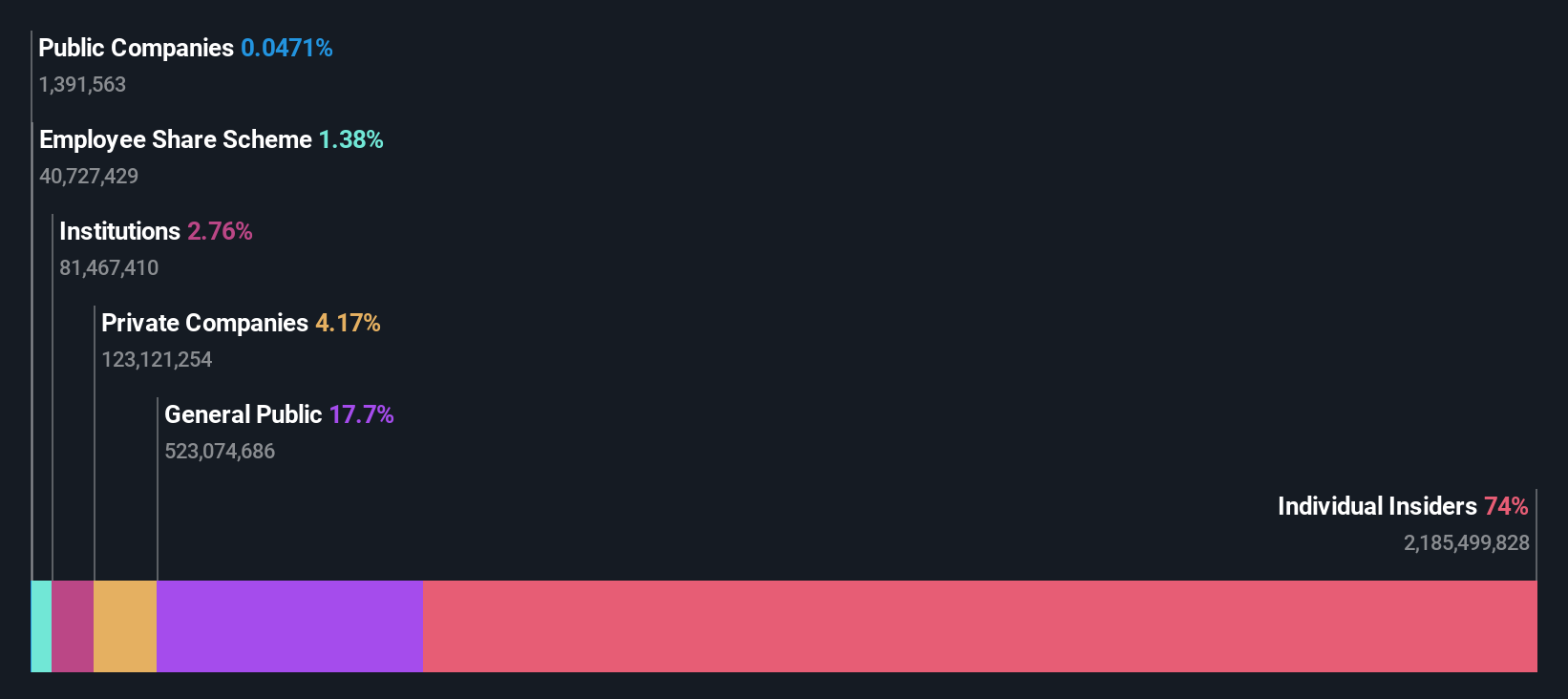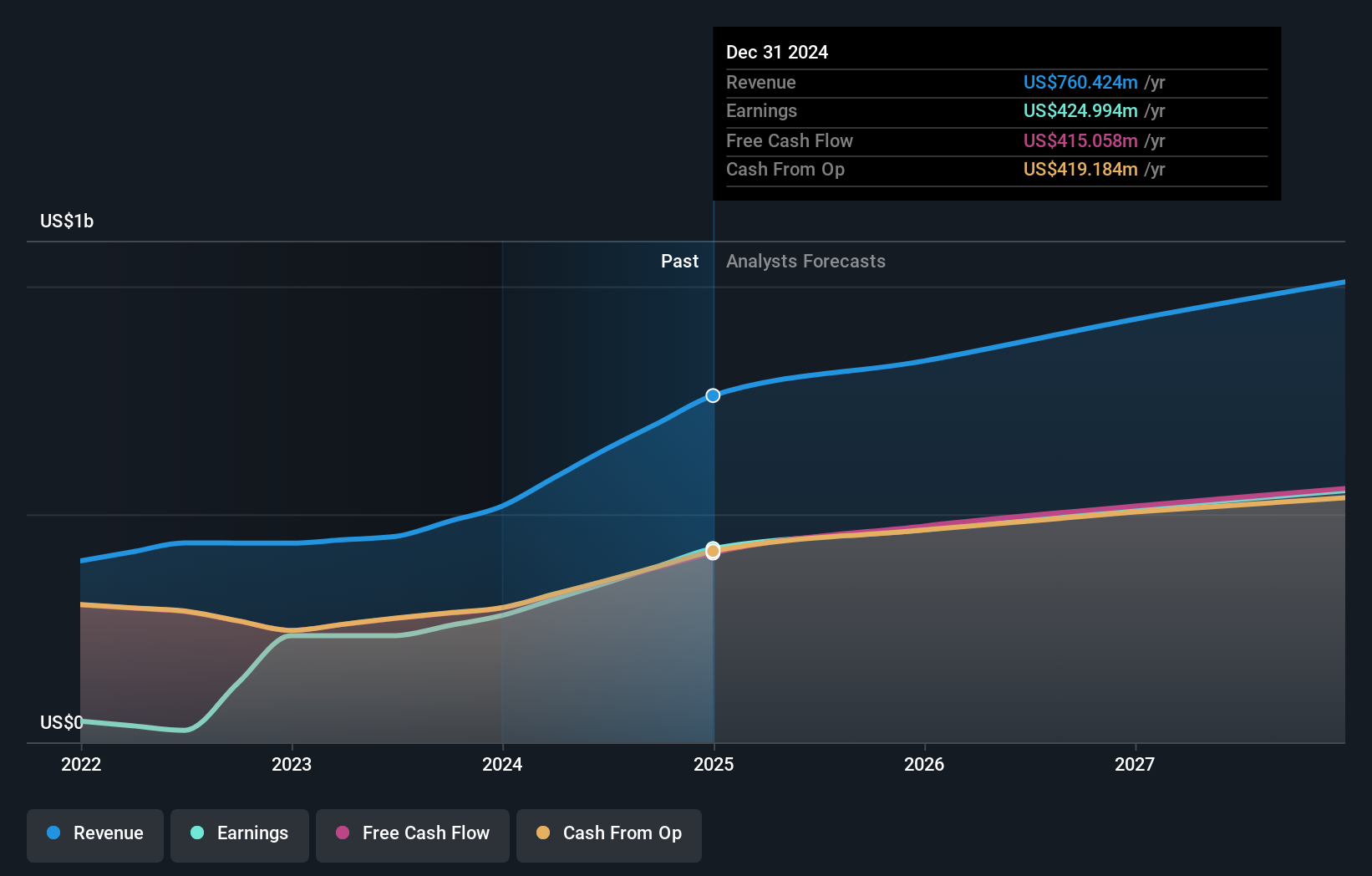- Australia
- /
- Capital Markets
- /
- ASX:GQG
After the recent decline, GQG Partners Inc. (ASX:GQG) Top Key Executive Rajiv Jain's holdings have lost 3.1% of their value
Key Insights
- Insiders appear to have a vested interest in GQG Partners' growth, as seen by their sizeable ownership
- 70% of the company is held by a single shareholder (Rajiv Jain)
- Ownership research along with analyst forecasts data help provide a good understanding of opportunities in a stock
To get a sense of who is truly in control of GQG Partners Inc. (ASX:GQG), it is important to understand the ownership structure of the business. With 74% stake, individual insiders possess the maximum shares in the company. In other words, the group stands to gain the most (or lose the most) from their investment into the company.
And following last week's 3.1% decline in share price, insiders suffered the most losses.
Let's take a closer look to see what the different types of shareholders can tell us about GQG Partners.
See our latest analysis for GQG Partners

What Does The Institutional Ownership Tell Us About GQG Partners?
Many institutions measure their performance against an index that approximates the local market. So they usually pay more attention to companies that are included in major indices.
Institutions have a very small stake in GQG Partners. That indicates that the company is on the radar of some funds, but it isn't particularly popular with professional investors at the moment. If the company is growing earnings, that may indicate that it is just beginning to catch the attention of these deep-pocketed investors. When multiple institutional investors want to buy shares, we often see a rising share price. The past revenue trajectory (shown below) can be an indication of future growth, but there are no guarantees.

Hedge funds don't have many shares in GQG Partners. From our data, we infer that the largest shareholder is Rajiv Jain (who also holds the title of Top Key Executive) with 70% of shares outstanding. Its usually considered a good sign when insiders own a significant number of shares in the company, and in this case, we're glad to see a company insider play the role of a key stakeholder. For context, the second largest shareholder holds about 4.0% of the shares outstanding, followed by an ownership of 3.7% by the third-largest shareholder. Interestingly, the third-largest shareholder, Timothy Carver is also a Member of the Board of Directors, again, indicating strong insider ownership amongst the company's top shareholders.
Researching institutional ownership is a good way to gauge and filter a stock's expected performance. The same can be achieved by studying analyst sentiments. There are plenty of analysts covering the stock, so it might be worth seeing what they are forecasting, too.
Insider Ownership Of GQG Partners
The definition of an insider can differ slightly between different countries, but members of the board of directors always count. The company management answer to the board and the latter should represent the interests of shareholders. Notably, sometimes top-level managers are on the board themselves.
Most consider insider ownership a positive because it can indicate the board is well aligned with other shareholders. However, on some occasions too much power is concentrated within this group.
Our most recent data indicates that insiders own the majority of GQG Partners Inc.. This means they can collectively make decisions for the company. That means insiders have a very meaningful AU$4.7b stake in this AU$6.4b business. Most would argue this is a positive, showing strong alignment with shareholders. You can click here to see if they have been selling down their stake.
General Public Ownership
The general public, who are usually individual investors, hold a 18% stake in GQG Partners. While this group can't necessarily call the shots, it can certainly have a real influence on how the company is run.
Private Company Ownership
Our data indicates that Private Companies hold 4.2%, of the company's shares. It might be worth looking deeper into this. If related parties, such as insiders, have an interest in one of these private companies, that should be disclosed in the annual report. Private companies may also have a strategic interest in the company.
Next Steps:
It's always worth thinking about the different groups who own shares in a company. But to understand GQG Partners better, we need to consider many other factors. For instance, we've identified 1 warning sign for GQG Partners that you should be aware of.
If you would prefer discover what analysts are predicting in terms of future growth, do not miss this free report on analyst forecasts.
NB: Figures in this article are calculated using data from the last twelve months, which refer to the 12-month period ending on the last date of the month the financial statement is dated. This may not be consistent with full year annual report figures.
New: Manage All Your Stock Portfolios in One Place
We've created the ultimate portfolio companion for stock investors, and it's free.
• Connect an unlimited number of Portfolios and see your total in one currency
• Be alerted to new Warning Signs or Risks via email or mobile
• Track the Fair Value of your stocks
Have feedback on this article? Concerned about the content? Get in touch with us directly. Alternatively, email editorial-team (at) simplywallst.com.
This article by Simply Wall St is general in nature. We provide commentary based on historical data and analyst forecasts only using an unbiased methodology and our articles are not intended to be financial advice. It does not constitute a recommendation to buy or sell any stock, and does not take account of your objectives, or your financial situation. We aim to bring you long-term focused analysis driven by fundamental data. Note that our analysis may not factor in the latest price-sensitive company announcements or qualitative material. Simply Wall St has no position in any stocks mentioned.
About ASX:GQG
Very undervalued with flawless balance sheet.
Similar Companies
Market Insights
Community Narratives



